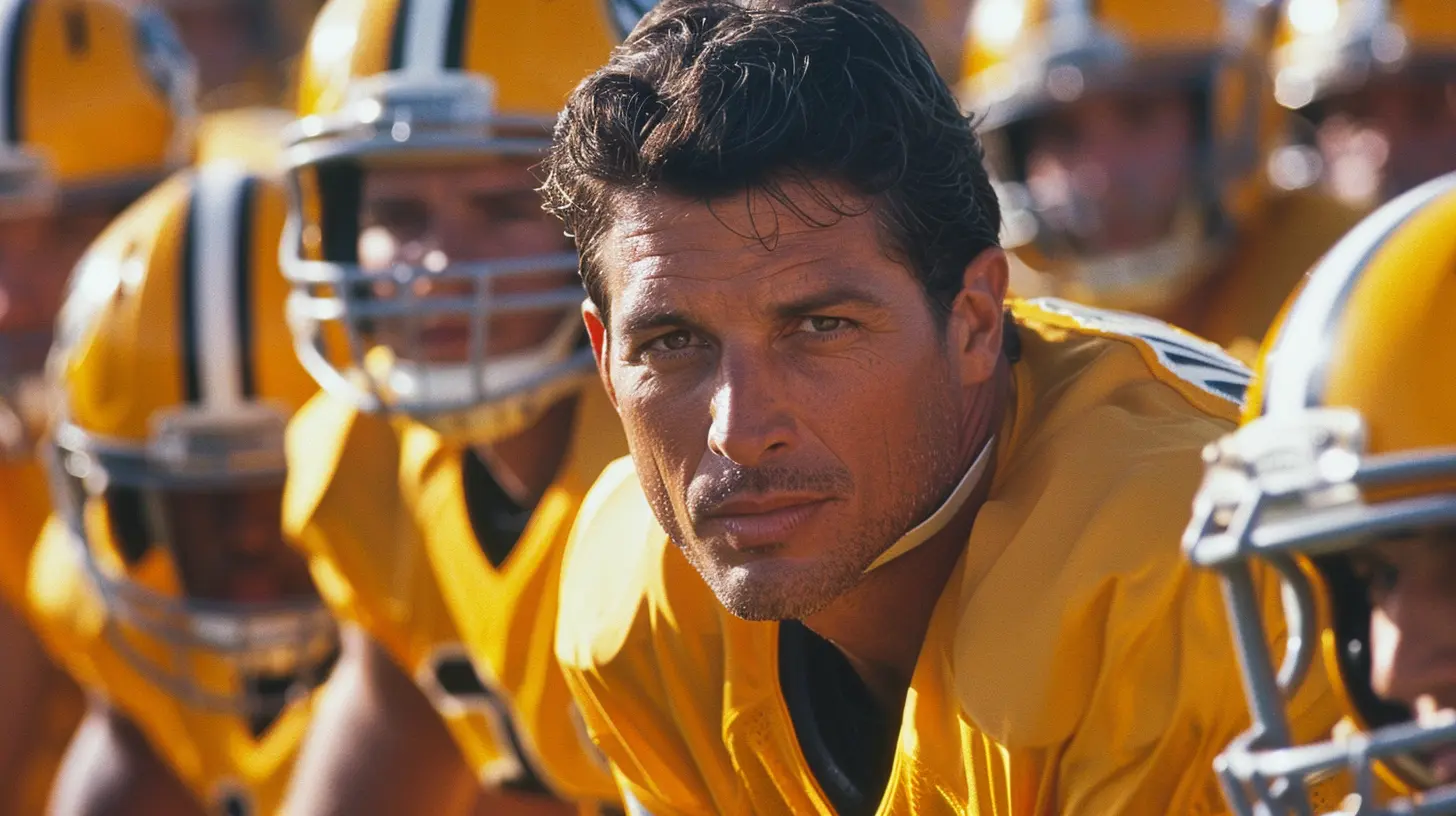From Player to Mentor: The Journey of a Legendary Coach
29 September 2025
Sports is a world where legends are born, but not all legends are made on the field. Some of the most iconic figures in sports history have made their mark not just as players but as mentors, shaping the future of the game from the sidelines. The transition from being a player to becoming a coach is a road less traveled for many, but for those who do, it's a journey filled with wisdom, passion, and a relentless drive for excellence.
In this article, we’ll dive into the incredible stories of athletes who've made the leap to coaching, the challenges they face, and what it truly means to be a mentor in the world of sports. Let's get started!

The Early Days: Building a Foundation
Before we talk about the transition to coaching, let's first explore the player’s journey. Every legendary coach started somewhere, often as a scrappy up-and-comer in their sport. These early years are crucial because they lay the foundation for everything that comes later.A Love for the Game
One of the things that unites all great coaches is their undying love for the game. Whether they were born with a natural talent or worked tirelessly to hone their skills, their passion for the sport is what drives them. It’s this same passion that eventually pushes them to continue their involvement in the game even after they’re done playing.Take Phil Jackson, for example. Known as the "Zen Master" of basketball coaching, Jackson's journey began on the court, where he played as a forward in the NBA. His love for basketball didn't end when he retired as a player; instead, it evolved. He wanted to pass on his knowledge, his love for the game, and his understanding of strategy.
Learning the Ropes
No athlete becomes a coach overnight. The transformation from player to mentor is gradual and often starts long before they hang up their boots or sneakers. Many athletes start mentoring younger players while they are still active in their careers. They become unofficial coaches, offering advice, guidance, and support to their teammates. These experiences help them develop the skills they will later use as full-time mentors.For example, Didier Deschamps, the legendary French soccer player, was known for his leadership on the field even before he transitioned to coaching. As captain of both his club and national teams, Deschamps was essentially a coach on the field. His natural leadership abilities made his eventual move to the sidelines a smooth one.

The Transition: From Player to Coach
Making the shift from player to coach is no easy feat. It’s a whole new ballgame (pun intended). If you’re used to being in the heat of the action, it can be a challenge to suddenly find yourself on the sidelines. The transition is often accompanied by a steep learning curve, as players-turned-coaches need to adjust their mindset and approach.Stepping Back from the Spotlight
One of the toughest parts of becoming a coach is stepping out of the spotlight. As a player, you’re often in the thick of the action, making split-second decisions that can change the course of a game. As a coach, however, your job is to guide from the sidelines. You have to trust your players to execute your game plan, and that can be a tough adjustment for someone who’s used to having control.Take Zinedine Zidane, for instance. As one of the best soccer players in history, Zidane was always in the spotlight. But when he transitioned to coaching, particularly at Real Madrid, he had to step back and let his players shine. It wasn’t about him anymore—it was about the team.
Learning to Lead Differently
Being a leader as a player is different from being a leader as a coach. As a player, your leadership is often about setting an example through your actions, whether that's by scoring goals or making crucial defensive plays. As a coach, your leadership is more about communication, strategy, and motivation.Many legendary coaches have spoken about the challenges of this shift. Bill Belichick, one of the greatest NFL coaches of all time, spent years as a player before transitioning to coaching. He has often said that coaching requires a deep understanding of human psychology. You have to know when to push your players and when to give them space. It’s a delicate balance.
Facing the Challenges
The transition from player to coach isn’t just about learning new skills—it’s also about facing new challenges. As a player, your job is to perform. As a coach, your job is to make sure your entire team performs. That’s a lot of pressure. If the team doesn’t succeed, the blame often falls on the coach.For example, after a successful playing career, Ole Gunnar Solskjaer took the reins as manager of Manchester United. His tenure was filled with ups and downs, and at times, he faced significant criticism. The pressure of coaching at the highest level is immense, and not everyone can handle it.

The Traits of a Legendary Coach
Not every former player goes on to become a great coach. So, what separates the legends from the rest? What traits do these iconic mentors possess that set them apart?Vision and Strategy
A great coach isn’t just someone who knows the game—they’re someone who sees the game differently. They have a unique vision and strategy that allows them to outthink their opponents. Think of someone like Pep Guardiola, who revolutionized soccer with his "tiki-taka" style of play. His ability to see the game differently and implement a clear strategy has made him one of the most successful coaches in modern soccer.Communication and Motivation
Being able to communicate effectively with players is one of the key traits of a legendary coach. It’s not just about telling players what to do—it’s about inspiring them to do it. A great coach knows how to motivate their players, how to get inside their heads, and how to push them to be the best they can be.Take Vince Lombardi, one of the greatest NFL coaches of all time. His motivational speeches are legendary, and his ability to get the best out of his players was unmatched. He knew how to inspire his team to play not just for themselves but for each other.
Adaptability and Growth
The best coaches are always learning. They don’t rest on their laurels—they’re constantly looking for ways to improve, both as individuals and as mentors. Whether it's adapting to new tactics or learning how to manage different personalities, adaptability is key.Sir Alex Ferguson, the legendary Manchester United manager, is a perfect example of this. Over his 26 years at the club, Ferguson constantly evolved his tactics and approach to keep up with the changing game. His ability to adapt is one of the reasons he stayed at the top for so long.

The Mentor’s Role: Shaping the Future of the Game
The most important role of a coach is to mentor the next generation of players. A legendary coach doesn’t just focus on winning games—they focus on developing their players, both on and off the field. They’re teachers, role models, and sometimes even parental figures.Passing on Knowledge
One of the most rewarding aspects of coaching is being able to pass on your knowledge to the next generation. Whether it’s teaching a young player how to improve their technique or helping them understand the mental side of the game, being a coach allows you to shape the future of the sport.For someone like Gregg Popovich, the legendary NBA coach, teaching is at the heart of what he does. Over the years, he has helped countless players develop their skills and go on to have successful careers. His ability to teach the game, both tactically and mentally, is what has made him one of the best.
Instilling Values and Discipline
More than just teaching the game, a legendary coach instills values and discipline in their players. They teach them about hard work, perseverance, and teamwork. These lessons go beyond the field or court—they’re life lessons that stick with players long after they retire.John Wooden, the iconic UCLA basketball coach, was known not just for his coaching success but for the values he instilled in his players. Wooden’s "Pyramid of Success" wasn’t just about winning—it was about building character. His players often credit him with shaping their lives, not just their basketball careers.
Leaving a Legacy
Ultimately, the journey from player to coach is about leaving a legacy. A legendary coach isn’t just remembered for the games they won—they’re remembered for the impact they had on the sport and the players they mentored. Their influence lasts long after they’ve retired, and their legacy continues to inspire future generations.For example, Johan Cruyff’s influence on soccer is still felt today, even though he’s no longer with us. His philosophy of "Total Football" transformed the game, and his legacy lives on through the players and coaches he mentored, including Pep Guardiola.
Conclusion: The Never-Ending Journey
The journey from player to mentor is one of the most rewarding paths in sports. It’s a journey filled with challenges, transformation, and personal growth. But for those who make the leap, the rewards are immense. They get to shape the future of the game, inspire the next generation of players, and leave a lasting legacy.So, the next time you watch a game and see a coach pacing the sidelines, remember: they’ve traveled a long road to get there. From player to mentor, their journey is one of the most important and impactful stories in sports.
all images in this post were generated using AI tools
Category:
Coach ProfilesAuthor:

Frankie Bailey
Discussion
rate this article
1 comments
Maxwell Carr
Inspiring journey! Transitioning from player to mentor highlights the power of experience and leadership.
October 13, 2025 at 10:53 AM

Frankie Bailey
Thank you! I'm glad you found the journey inspiring. Leadership truly grows from experience.


